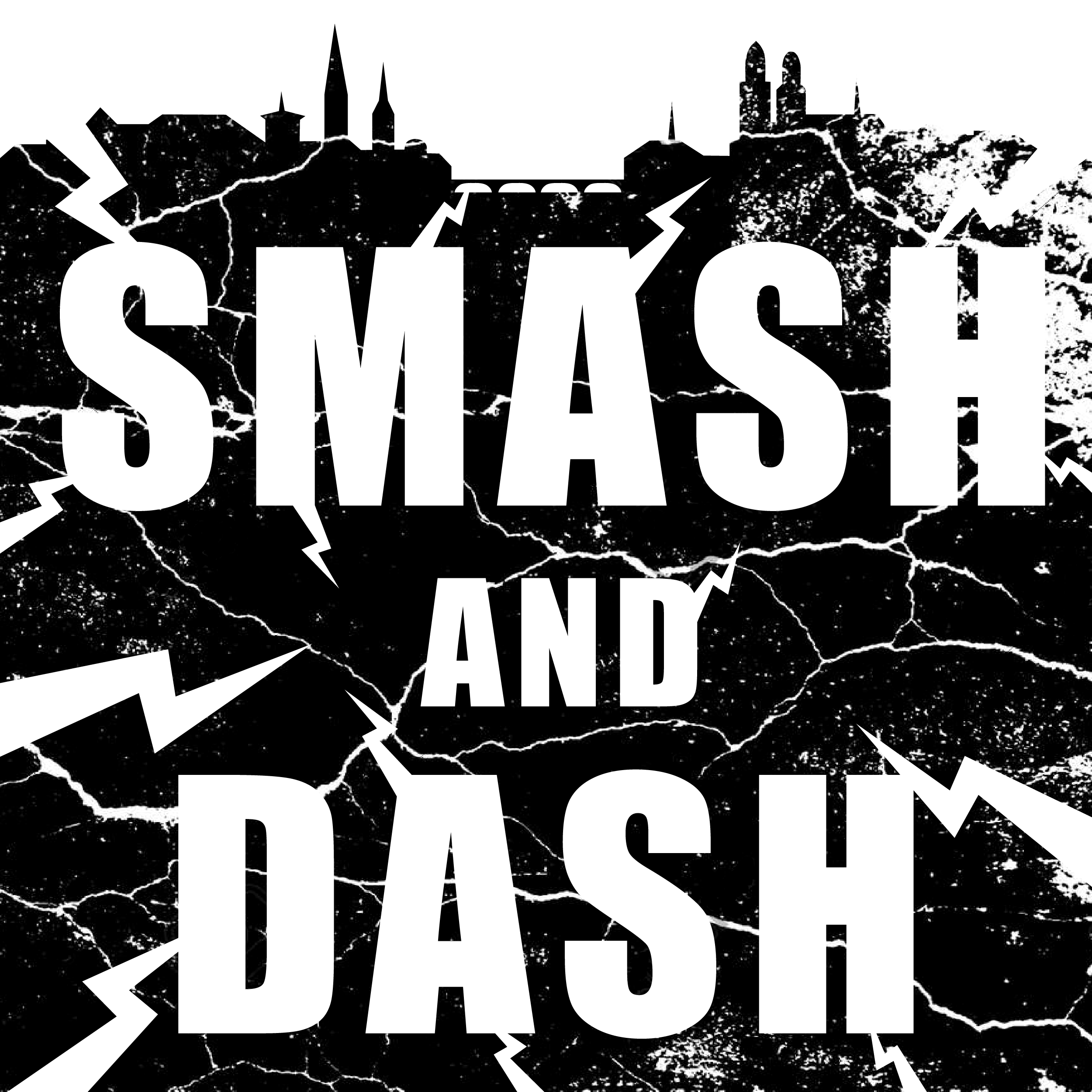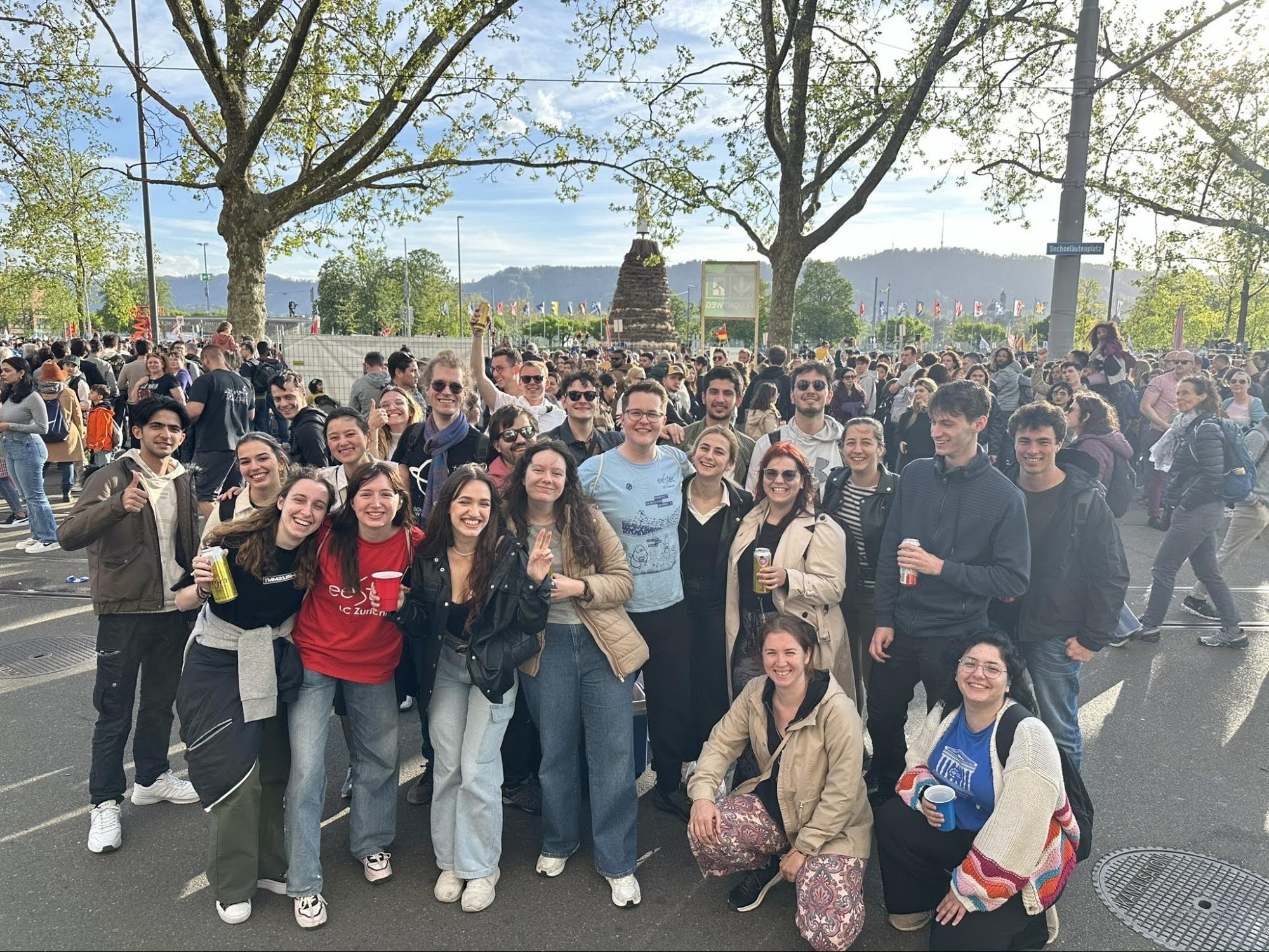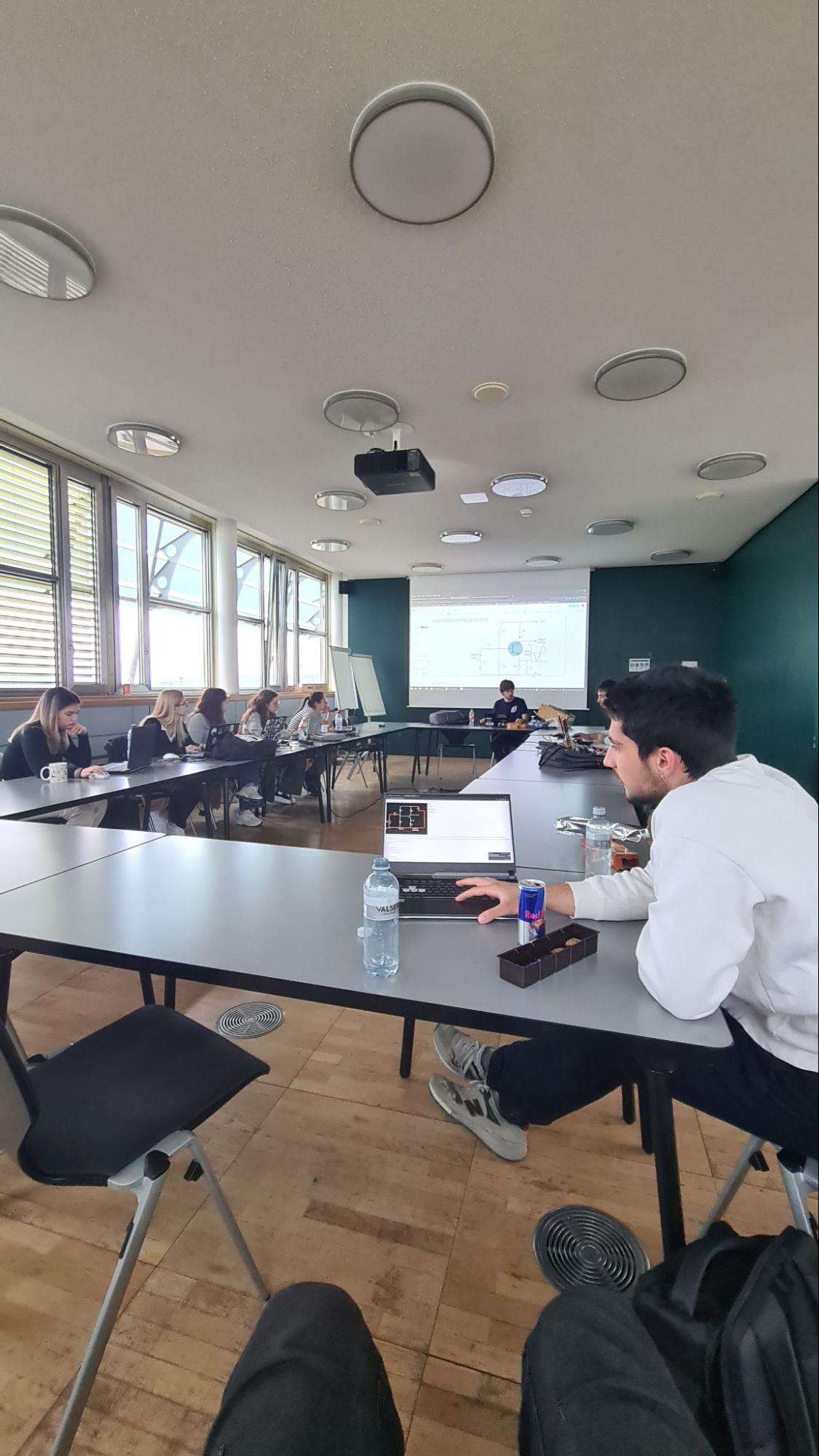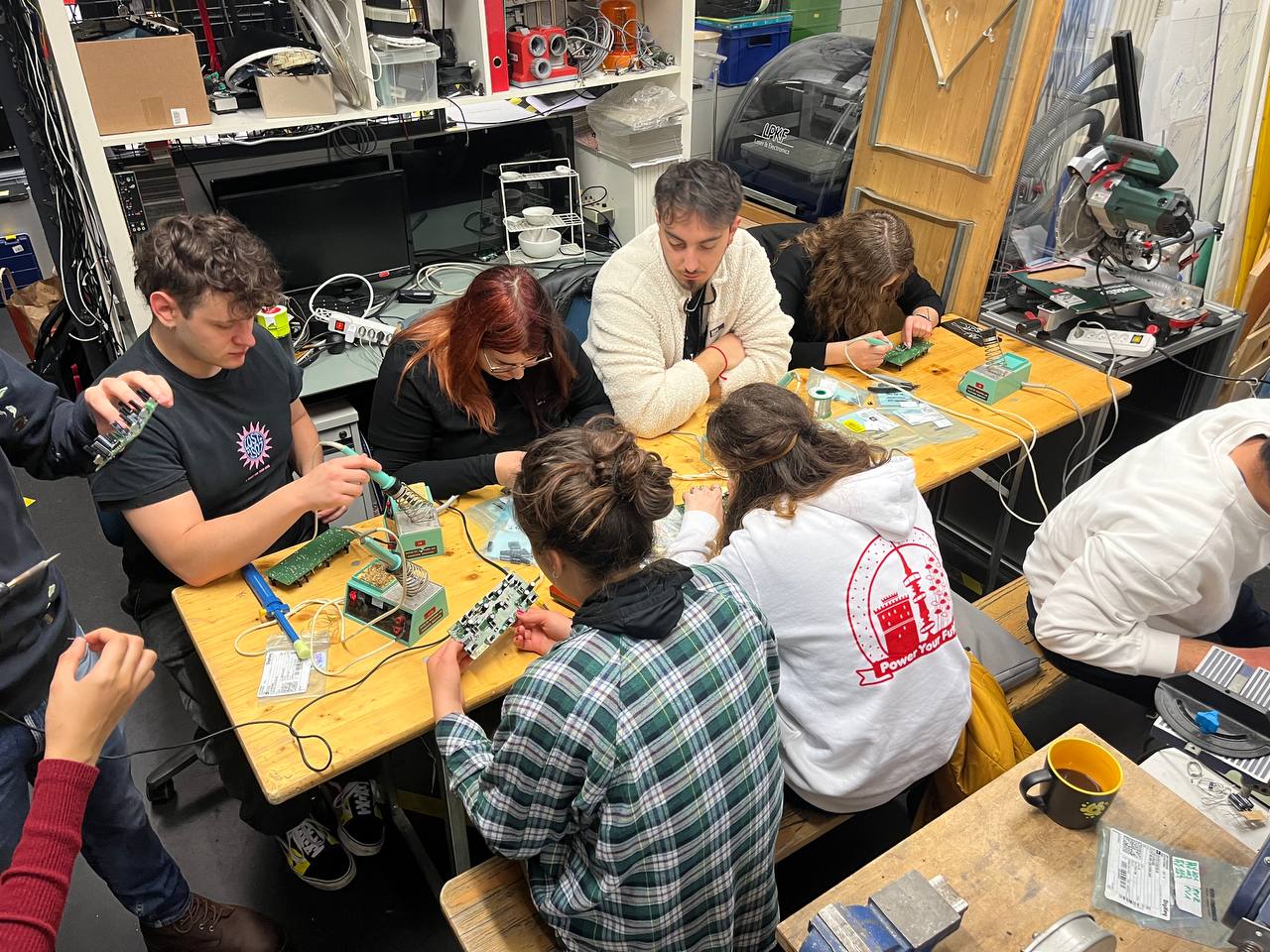- Academic Part
This year’s workshop was very similar to last year’s as it demonstrated the various steps of electronic hardware development through an audio project example in collaboration with Bastli. The workshop began with theory sessions on audio amplification and hardware design, followed by practical applications such as circuit simulation, component selection, and PCB layout. Participants designed a PCB, assembled it using soldering irons, and tested it to ensure functionality. The process concluded with an analysis of the hardware using an oscilloscope to validate the initially simulated circuit.
Participants learned how to approach the task of electronics hardware development, enabling them to apply these steps to their own projects. They gained a solid foundation in audio amplification theory, practical PCB design skills, soldering experience, and proficiency in using tools like oscilloscopes. Each participant received their own PCB and an event T-shirt as souvenirs.
- In Detail
Monday: Participants began with an overview of audio amplification and filtering theory. They then moved on to circuit simulation and component selection through datasheet analysis, concluding with a theory session on PCB design and setting up their PCB projects.
Tuesday: The day focused on designing schematics based on the simulated circuitry and laying out the PCB. Participants reviewed the PCB designs in pairs and ended with a comprehensive overview of the final PCB’s functionality.
Wednesday: Participants were introduced to soldering techniques in the morning and immediately applied their new knowledge by soldering their own PCBs throughout the day.
Thursday: The morning session continued with soldering and rigorous PCB testing using multimeters and test protocols. In the afternoon, participants were introduced to oscilloscopes and analyzed their PCBs, observing their audio hardware in action.
Friday: The workshop concluded with an overview and demonstrations of additional audio amplification projects, providing participants with further insights and inspiration for their own future projects.
- Cultural Part
Sunday: The workshop kicked off with various get-to-know-each-other games in the afternoon, serving as effective icebreakers and allowing participants to quickly bond. The evening featured a Welcome Ceremony at our accommodation.
Monday: The first academic day was cut slightly short (16:00 instead of the usual 18:00), to give the participants a chance to experience the “Sächseläuten” in Zurich.
Tuesday: The evening was highlighted by “International Night”, an EESTEC tradition where participants shared food and drinks from their home countries. We got to try sweets, snacks and drinks from Turkey, Serbia, Greece, Poland and many other countries. As our Swiss contribution we provided a selection of cheese and chocolate.
Wednesday: In the afternoon, participants embarked on a city rally through Zurich, completing various challenges and enjoying the sights. The day ended with a grill dinner and a visit to the Papperlapub, which enabled the participants to network with non-EESTEC ETH students.
Thursday: The evening featured a tram ride through Zurich, providing further opportunities to explore the city.
Friday: The workshop concluded with a dinner featuring Fondue together with participants from the EESTech Challenge Hackathon (another event organized by EESTEC).
Throughout the academic sessions, short breaks were utilized to show international participants around the ETH buildings, showcasing our university.
One of the most valuable aspects of our workshops is the opportunity for participants to casually exchange experiences with peers from different countries. Hosting people from ten different countries in one spot broadens horizons, exposing participants to diverse problem-solving approaches, unique issues faced in different regions, and varied cultural practices.
